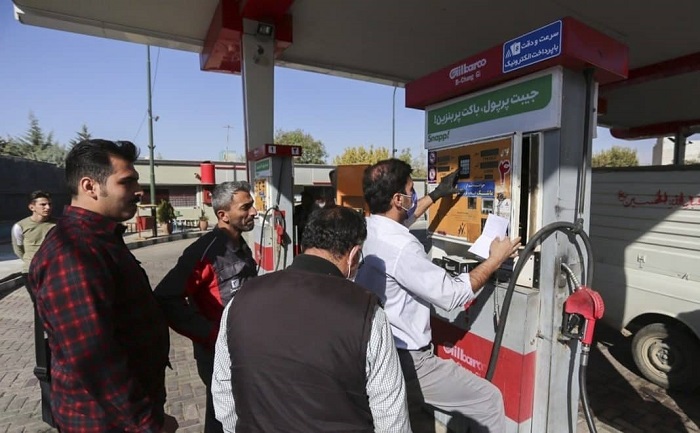
Gas station quotas have been reduced to 100 liters, while the regime’s propaganda networks are amplifying claims that gasoline is being consumed at excessive rates and that low domestic prices have resulted in very high volumes of gasoline smuggled to neighboring countries. Such claims are standard justifications for the regime’s price increases.
Meanwhile, government officials are responding inconsistently to reports about impending increases. According to the CEO of the Oil Products Refining and Distribution Company, “The government quota of 60 liters in fuel cards remains, and only the free quota has decreased by 100 liters and has reached 150 liters from 250 liters,” State-run TV reported on August 31.
Contradictory statements, alternating confirmations and denials, and the implementation of temporary projects in some cities and regions of the country are well-known regime tactics for wearing down social sensitivities.
The regime has learned from the November 2019 uprising that the price of sensitive goods such as gasoline and bread should be “managed” step by step by creating artificial shortages that force people to queue for kilometers and pave the way for the price of gasoline to rise.
The regime’s false and deceptive propaganda claims that Iran’s gasoline prices are the lowest in the world and that its gasoline consumption is the highest. In this way, it shifts blame away from the catastrophically high death rate due to air pollution, which currently stands at 21,000 people per year.
Claims about cheap gasoline also gloss over the fact that the cost of labor in Iran is many times lower, with an average Iranian worker earning one-tenth to one-third of what their counterparts in neighboring countries in the region earn.
As per reports from various cities, long lines form in front of bakeries. The supply of government flour to bakeries has decreased, and people, particularly the poor, are forced to buy it from independent bakeries at several times the market price because government quotas do not cover even basic consumption.

The skyrocketing prices of essential goods and the high inflation rate are not without reason. The regime deprives the Iranian people of food, milk, fruit, chicken, and eggs and exports them to other countries to fund its nuclear program, repressive activities, terrorism, and warmongering in the region.
In a press conference on August 9, President Ebrahim Raisi claimed that his government had “Solved the budget deficit without printing money!”
“However, Abdolnasser Hemati, the former head of the central bank, revealed that 134 trillion Tomans were printed in a 10-month period (from September 23, 2021 to the end of July 2022).”
A day after Raisi’s lie, Supreme Leader Ali Khamenei appeared on the scene to support those lies, demonstrating that he was also behind his predatory and destructive actions. But the question is, how long and to what extent will the Supreme Leader be able to keep the regime afloat in the face of the storm of uprisings by concealing the explosive situation in Iranian society and the decay of the entire regime?
 MEK Iran (follow us on Twitter and Facebook), Maryam Rajavi’s on her site, Twitter & Facebook, NCRI (Twitter & Facebook), and People’s Mojahedin Organization of Iran – MEK IRAN – YouTub
MEK Iran (follow us on Twitter and Facebook), Maryam Rajavi’s on her site, Twitter & Facebook, NCRI (Twitter & Facebook), and People’s Mojahedin Organization of Iran – MEK IRAN – YouTub







